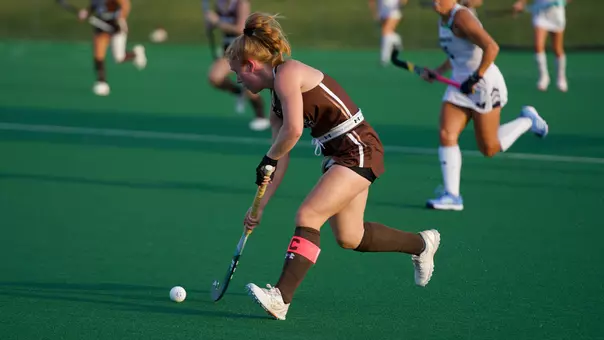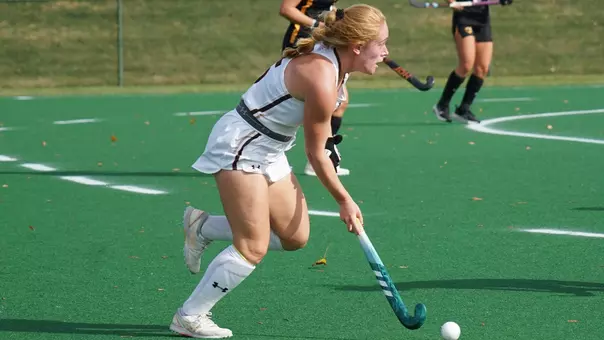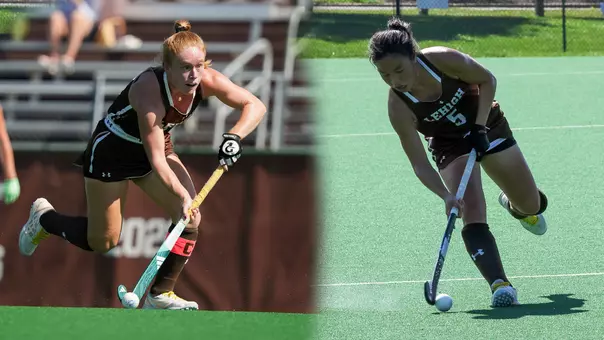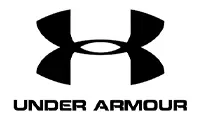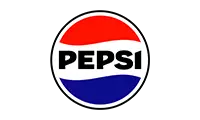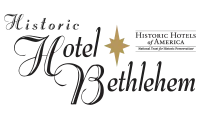Lehigh University Athletics
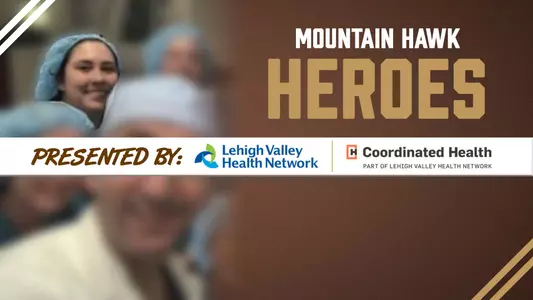
Mountain Hawk Heroes: Field Hockey Alum Mercedes Grubb
12/9/2020 1:14:00 PM | Field Hockey, Support, Features, Flight 45, Intellectual Development
Every Wednesday, Lehigh Athletics, Lehigh Valley Health Network and Coordinated Health is proud to recognize a Mountain Hawk Hero - someone associated with Lehigh Athletics who is making a difference in the medical field. We continue today with field hockey alum Mercedes Grubb '13.
Previous Mountain Hawk Heroes
December 2: Halie Carter (Track and Field Alum)
November 25: Sarah Cassidy (Track and Field Alum)
November 18: Shannon Alejandro (Track and Field/Cross Country Alum)
November 11: Simon Voorhees (Track and Field/Cross Country Alum)
November 4: Michael Metzger (Men's Lacrosse Alum)
October 28: Jen (Lance) Sikorski (Rowing Alum)
October 21: Shannon Wright (Track and Field/Cross Country Alum)
October 14: Darren Saks (Men's Soccer Alum)
October 7: Jenny Warner Southard (Track and Field Alum)
September 30: Taylor Wise (Swimming and Diving Alum)
September 23: Matt Christman (Track and Field Alum)
September 16: Steph Fratoni (Field Hockey Alum)
September 9: Mike Price (Swimming and Diving Alum)
September 2: Yasmin Deliz (Track and Field Alum)
August 26: Evan Guerrero (Men's Lacrosse Alum)
August 19: Ross Biggs (Baseball Alum)
August 12: Cynthia Izuno Macri (Soccer Alum)
August 5: Susan Westman (Rowing Student-Athlete)
July 29: Megan Hetzel (Track and Field/Cross Country Alum)
July 22: Lexi Martins (Women's Basketball Alum)
July 15: Nii Daako-Darko (Track and Field/Cross Country Alum)
July 8: Ali Linsk Butash (Softball Alum)
July 1: Kimberly Scotto-Wetzel & Jonathan Wetzel (Track and Field/Cross Country Alums)
June 24: Robert Bonow (Men's Basketball Alum)
June 17: Morgan Decker (Softball Alum)
June 10: Jim Guzzo (Former Quarterback)
June 3: Amina Affini (Women's Basketball Alum)
May 27: Natalie Krane (Women's Soccer Alum)
May 20: Tricia Klein (Women's Golf Assistant Coach)
By: Justin Lafleur, Lehigh Sports Communications
In her role as a clinical neurophysiologist, Lehigh field hockey alum Mercedes Grubb is literally changing lives… and livelihoods.
"I love knowing what I do makes a positive difference in patient outcomes," she said. "I've had patients who were musicians with a high chance of losing function in their hands or upper extremities. If we (neurophysiologists) weren't there, they probably would've had pretty severe deficits.
"But because we were there, they're at least able to play their instrument and have that little bit of joy in life that they didn't want taken away."
Grubb currently works at Thomas Jefferson Hospital in Philadelphia as a contractor, working with neurosurgeons and neurologists. Her days range from being in the office, to being in the hospital, to seeing patients at clinics.
"What a neurophysiologist does at its base is help quantify neurophysiological deficits, as well as predict postoperative outcomes – hopefully positive, but sometimes trying to prevent negative outcomes from happening," said Grubb. "I could do anything from working on the spine and doing distant monitoring to doing nerve conduction studies. I work with Parkinson's patients and stroke patients.
"There are a lot of different services I work with, and a lot of different diagnoses."
Another diagnosis Grubb has been involved with is brain tumors, specifically motor mapping when there's a tumor over the sensory or motor cortex that could inhibit the patient's life if the tumor resection isn't done properly.
"Oftentimes when people have a lesion in their brain, their natural anatomy gets distorted or people sometimes have uncommon anatomy," said Grubb. "What I do is help in real time map out their actual anatomy. Not the anatomy we assume they have or the anatomy that textbooks say most people have, but the anatomy with the lesion being there."

Awake brain surgery typically features a two-team neurophysiologist, including one person stimulating the brain and the other talking to the patient.
"I'm the person who talks to the patient most frequently," said Grubb. "I do different types of testing, but to most people, it just looks like we're talking a lot and asking basic or very silly questions. We're looking to see if they lose understanding during that period of stimulation, and looking to see if they lose the ability to express themselves."
In other words, neurophysiologists map out the cortex to identity which parts are tumor and can be removed, versus which parts are actual brain tissue that affect everyday function.
Little did Grubb expect when she entered Lehigh that she would be at this point. She entered Lehigh in the business school and had several interests, but wound up graduating in 2013 with her behavioral neuroscience degree.
"By the end of my freshman year, I was pretty sure I wanted to at least take a stab at trying to be pre-med and declared the behavioral neuroscience major," said Grubb. "That checked all the boxes for starting to apply to medical school by the end of my junior year. But by that time, I became more interested in the engineering component of different classes."
Lehigh professor, Dr. Jennifer Swan, helped Grubb find the field of neurophysiology.
"Through Dr. Swan's mentorship, I found neurophysiology as a perfect mix of engineering and medicine," said Grubb.
After Lehigh, Grubb moved onto a clinical fellowship with SpecialtyCare, which led into becoming a full-time surgical neurophysiologist.
And she has continued to move up the ranks ever since.
"The SpecialtyCare practice is stationed in Nashville, Tennessee, but they have contractors all over the United States," said Grubb. "I could have been sent anywhere, and I ended up in Philadelphia which is where I'm from.
"I've been here ever since."
Grubb is extremely happy and fulfilled in what she's doing, but felt motivated to keep learning and growing. From 2016-19, she completed Lehigh's new healthcare and systems engineering program.
"I decided I wanted to go back to school for initially, I thought an MBA," said Grubb. "But then when I started researching programs, Lehigh's HSE program seemed to be the best fit for me long-term."

In her career, Grubb may not be the doctor performing surgery, but she still impacts so many lives using her expertise. Along the way, Grubb has also developed an interest in process improvement.
"Even solving some issues that aren't clinically based, something like our schedule, is extremely important," she said. "With medicine in general, I feel like schedules can be very chaotic. You have a lot of burnout in the field. Having the background in process improvement, I've been able to remodify our schedule for my team to help us experience a better work-life balance.
"I'm looking to transition my career more into the quality control process side of health care, improvement and strategy," Grubb continued.
Lehigh's healthcare and systems engineering program was one of many ways her alma mater has helped her get to this point in her life.
"Academically, Lehigh definitely pushes you," said Grubb. "Lehigh holds its students to a high standard, not just educationally but also as people. Lehigh definitely prepared me for the medical field where you're expected to know a lot of information and are rigorously tested."
Grubb also learned resiliency throughout her student-athlete experience.
"You're constantly under pressure, constantly putting your body under stress, and it just becomes the norm where it's no longer stressful and no longer viewed as pressure," she said. "It's just another day."
Cool under pressure is a way to describe Grubb in pretty high-stress settings today, often working with patients' livelihoods on the line.
Some of Grubb's patients are short term, while others can be long term.
"We have patients who unfortunately have very aggressive cancers and you may see them for years," she said. "We also have some Parkinson's patients or stroke patients that you're going to see for all of their follow-ups for a five-year plan. We do have some patients who we see quite often, and you get to form a relationship with them."
As if her work in neurophysiology isn't impactful enough, Grubb has also undertaken another endeavor… opening a unique and meaningful gym.
"We're a small personal training studio," she said. "Our whole motto is training people like athletes to win at the game of life. We also rent out space to independent trainers to help them get a footing in the business."
After Lehigh, Grubb was looking for a gym that would "click" with her background as a lifelong athlete, but couldn't find it.
"Going to a big box gym by myself wasn't doing it for me, neither was aerobics classes or anything like," she said. "I understood I would never play at a high caliber again, but just wanted to be a healthy, functioning human being.

"So two friends and I, all former college athletes, got together," Grubb continued. "When someone comes, it's like you're being personally trained all the time. You constantly have eyes on you; you constantly have people correcting you. You're not just moving; you're moving for precision.
"It's like practice."
Grubb is thankful for all her days at practice as a student-athlete, and that team dynamic helped mold her into the person she is today.
"A good leader also has to be a good follower and when you play a team sport, you really learn that balance," said Grubb. "Your teammates tend to look at you for your strengths and capabilities to lead them at a given moment. Other people on your team have different strengths and capabilities. At those moments, you fall back into that following position and look to them to lead.
"I believe that [adaptability] is a very key ability and characteristic when you're working in any leadership role in corporate America," she continued. "You want to build a team to have complementary strengths and weaknesses. You have to know when it's your turn to step up, but also know when it's your turn to follow the other leadership to make the best improvement possible."
Improvement, specifically process improvement, is Grubb's biggest focus moving forward.
"In the next five years, I would love to make that leap from clinician to something more in process/strategic improvement, working more as an engineer in the medical field rather than a clinician," said Grubb. "And in 10 years, if I'm able to make that leap, I'd love to be a part of the leadership team for process improvement in the hospital."
No matter what her future holds, Grubb will undoubtedly continue to change lives and livelihoods in meaningful ways.
Previous Mountain Hawk Heroes
December 2: Halie Carter (Track and Field Alum)
November 25: Sarah Cassidy (Track and Field Alum)
November 18: Shannon Alejandro (Track and Field/Cross Country Alum)
November 11: Simon Voorhees (Track and Field/Cross Country Alum)
November 4: Michael Metzger (Men's Lacrosse Alum)
October 28: Jen (Lance) Sikorski (Rowing Alum)
October 21: Shannon Wright (Track and Field/Cross Country Alum)
October 14: Darren Saks (Men's Soccer Alum)
October 7: Jenny Warner Southard (Track and Field Alum)
September 30: Taylor Wise (Swimming and Diving Alum)
September 23: Matt Christman (Track and Field Alum)
September 16: Steph Fratoni (Field Hockey Alum)
September 9: Mike Price (Swimming and Diving Alum)
September 2: Yasmin Deliz (Track and Field Alum)
August 26: Evan Guerrero (Men's Lacrosse Alum)
August 19: Ross Biggs (Baseball Alum)
August 12: Cynthia Izuno Macri (Soccer Alum)
August 5: Susan Westman (Rowing Student-Athlete)
July 29: Megan Hetzel (Track and Field/Cross Country Alum)
July 22: Lexi Martins (Women's Basketball Alum)
July 15: Nii Daako-Darko (Track and Field/Cross Country Alum)
July 8: Ali Linsk Butash (Softball Alum)
July 1: Kimberly Scotto-Wetzel & Jonathan Wetzel (Track and Field/Cross Country Alums)
June 24: Robert Bonow (Men's Basketball Alum)
June 17: Morgan Decker (Softball Alum)
June 10: Jim Guzzo (Former Quarterback)
June 3: Amina Affini (Women's Basketball Alum)
May 27: Natalie Krane (Women's Soccer Alum)
May 20: Tricia Klein (Women's Golf Assistant Coach)
By: Justin Lafleur, Lehigh Sports Communications
In her role as a clinical neurophysiologist, Lehigh field hockey alum Mercedes Grubb is literally changing lives… and livelihoods.
"I love knowing what I do makes a positive difference in patient outcomes," she said. "I've had patients who were musicians with a high chance of losing function in their hands or upper extremities. If we (neurophysiologists) weren't there, they probably would've had pretty severe deficits.
"But because we were there, they're at least able to play their instrument and have that little bit of joy in life that they didn't want taken away."
Grubb currently works at Thomas Jefferson Hospital in Philadelphia as a contractor, working with neurosurgeons and neurologists. Her days range from being in the office, to being in the hospital, to seeing patients at clinics.
"What a neurophysiologist does at its base is help quantify neurophysiological deficits, as well as predict postoperative outcomes – hopefully positive, but sometimes trying to prevent negative outcomes from happening," said Grubb. "I could do anything from working on the spine and doing distant monitoring to doing nerve conduction studies. I work with Parkinson's patients and stroke patients.
"There are a lot of different services I work with, and a lot of different diagnoses."
Another diagnosis Grubb has been involved with is brain tumors, specifically motor mapping when there's a tumor over the sensory or motor cortex that could inhibit the patient's life if the tumor resection isn't done properly.
"Oftentimes when people have a lesion in their brain, their natural anatomy gets distorted or people sometimes have uncommon anatomy," said Grubb. "What I do is help in real time map out their actual anatomy. Not the anatomy we assume they have or the anatomy that textbooks say most people have, but the anatomy with the lesion being there."

Awake brain surgery typically features a two-team neurophysiologist, including one person stimulating the brain and the other talking to the patient.
"I'm the person who talks to the patient most frequently," said Grubb. "I do different types of testing, but to most people, it just looks like we're talking a lot and asking basic or very silly questions. We're looking to see if they lose understanding during that period of stimulation, and looking to see if they lose the ability to express themselves."
In other words, neurophysiologists map out the cortex to identity which parts are tumor and can be removed, versus which parts are actual brain tissue that affect everyday function.
Little did Grubb expect when she entered Lehigh that she would be at this point. She entered Lehigh in the business school and had several interests, but wound up graduating in 2013 with her behavioral neuroscience degree.
"By the end of my freshman year, I was pretty sure I wanted to at least take a stab at trying to be pre-med and declared the behavioral neuroscience major," said Grubb. "That checked all the boxes for starting to apply to medical school by the end of my junior year. But by that time, I became more interested in the engineering component of different classes."
Lehigh professor, Dr. Jennifer Swan, helped Grubb find the field of neurophysiology.
"Through Dr. Swan's mentorship, I found neurophysiology as a perfect mix of engineering and medicine," said Grubb.
After Lehigh, Grubb moved onto a clinical fellowship with SpecialtyCare, which led into becoming a full-time surgical neurophysiologist.
And she has continued to move up the ranks ever since.
"The SpecialtyCare practice is stationed in Nashville, Tennessee, but they have contractors all over the United States," said Grubb. "I could have been sent anywhere, and I ended up in Philadelphia which is where I'm from.
"I've been here ever since."
Grubb is extremely happy and fulfilled in what she's doing, but felt motivated to keep learning and growing. From 2016-19, she completed Lehigh's new healthcare and systems engineering program.
"I decided I wanted to go back to school for initially, I thought an MBA," said Grubb. "But then when I started researching programs, Lehigh's HSE program seemed to be the best fit for me long-term."

In her career, Grubb may not be the doctor performing surgery, but she still impacts so many lives using her expertise. Along the way, Grubb has also developed an interest in process improvement.
"Even solving some issues that aren't clinically based, something like our schedule, is extremely important," she said. "With medicine in general, I feel like schedules can be very chaotic. You have a lot of burnout in the field. Having the background in process improvement, I've been able to remodify our schedule for my team to help us experience a better work-life balance.
"I'm looking to transition my career more into the quality control process side of health care, improvement and strategy," Grubb continued.
Lehigh's healthcare and systems engineering program was one of many ways her alma mater has helped her get to this point in her life.
"Academically, Lehigh definitely pushes you," said Grubb. "Lehigh holds its students to a high standard, not just educationally but also as people. Lehigh definitely prepared me for the medical field where you're expected to know a lot of information and are rigorously tested."
Grubb also learned resiliency throughout her student-athlete experience.
"You're constantly under pressure, constantly putting your body under stress, and it just becomes the norm where it's no longer stressful and no longer viewed as pressure," she said. "It's just another day."
Cool under pressure is a way to describe Grubb in pretty high-stress settings today, often working with patients' livelihoods on the line.
Some of Grubb's patients are short term, while others can be long term.
"We have patients who unfortunately have very aggressive cancers and you may see them for years," she said. "We also have some Parkinson's patients or stroke patients that you're going to see for all of their follow-ups for a five-year plan. We do have some patients who we see quite often, and you get to form a relationship with them."
As if her work in neurophysiology isn't impactful enough, Grubb has also undertaken another endeavor… opening a unique and meaningful gym.
"We're a small personal training studio," she said. "Our whole motto is training people like athletes to win at the game of life. We also rent out space to independent trainers to help them get a footing in the business."
After Lehigh, Grubb was looking for a gym that would "click" with her background as a lifelong athlete, but couldn't find it.
"Going to a big box gym by myself wasn't doing it for me, neither was aerobics classes or anything like," she said. "I understood I would never play at a high caliber again, but just wanted to be a healthy, functioning human being.

"So two friends and I, all former college athletes, got together," Grubb continued. "When someone comes, it's like you're being personally trained all the time. You constantly have eyes on you; you constantly have people correcting you. You're not just moving; you're moving for precision.
"It's like practice."
Grubb is thankful for all her days at practice as a student-athlete, and that team dynamic helped mold her into the person she is today.
"A good leader also has to be a good follower and when you play a team sport, you really learn that balance," said Grubb. "Your teammates tend to look at you for your strengths and capabilities to lead them at a given moment. Other people on your team have different strengths and capabilities. At those moments, you fall back into that following position and look to them to lead.
"I believe that [adaptability] is a very key ability and characteristic when you're working in any leadership role in corporate America," she continued. "You want to build a team to have complementary strengths and weaknesses. You have to know when it's your turn to step up, but also know when it's your turn to follow the other leadership to make the best improvement possible."
Improvement, specifically process improvement, is Grubb's biggest focus moving forward.
"In the next five years, I would love to make that leap from clinician to something more in process/strategic improvement, working more as an engineer in the medical field rather than a clinician," said Grubb. "And in 10 years, if I'm able to make that leap, I'd love to be a part of the leadership team for process improvement in the hospital."
No matter what her future holds, Grubb will undoubtedly continue to change lives and livelihoods in meaningful ways.
Players Mentioned
Playing for something bigger than the game
Thursday, October 23
MHT EP3 - Field Hockey
Thursday, October 16
Field Hockey vs. Boston U.
Saturday, October 04
Field Hockey vs. LIU
Sunday, September 28

